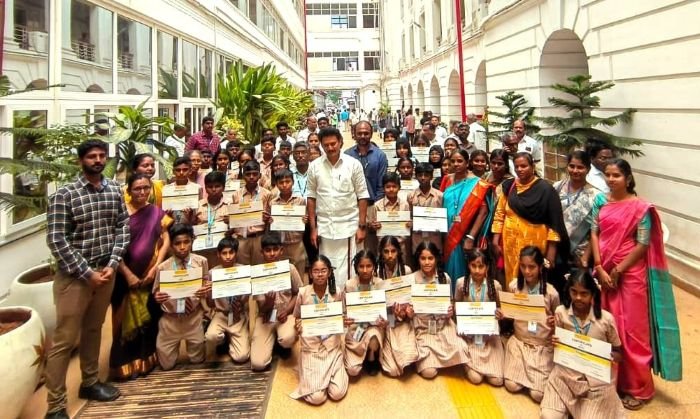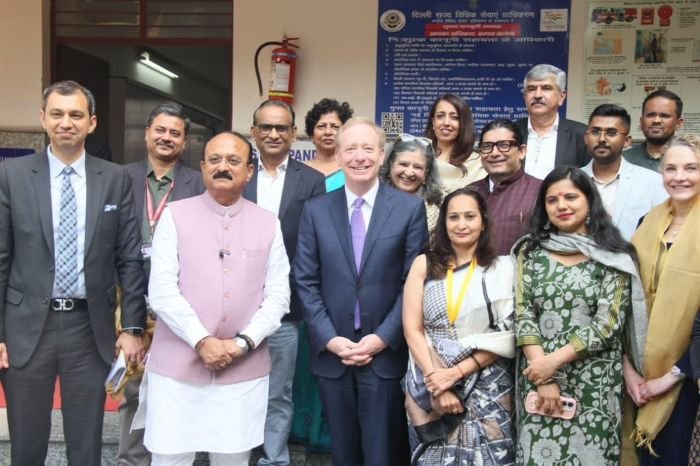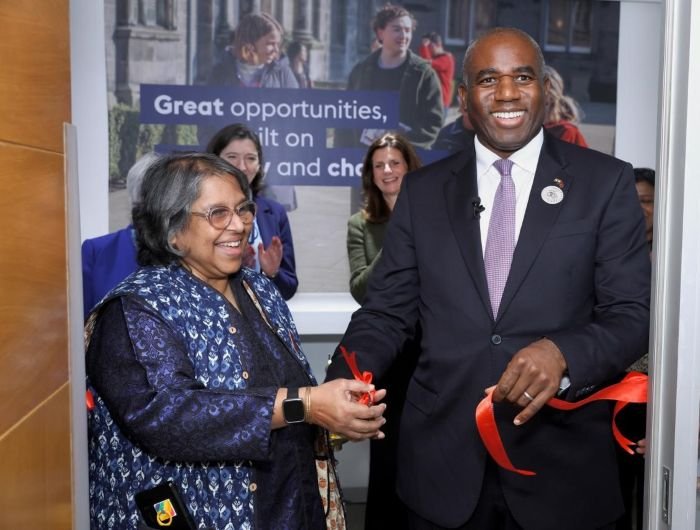
Indian Institute of Technology Guwahati hosted the Smart India Hackathon (SIH) 2024 Grand Finale, held on 11th and 12th December 2024. As a designated nodal center, IIT Guwahati facilitated the software edition of the hackathon, hosting student teams from across the country. Participants from Maharashtra, Telangana, Delhi, Tamil Nadu, Odisha, Karnataka, and Uttar Pradesh competed by addressing 186 problem statements through innovative solutions.
This year’s hackathon addressed a diverse range of themes, including Space Technology, Heritage and Culture, Medtech/Biotech/Healthtech, Agriculture, Food and Rural Development, Smart Vehicles, Transportation and Logistics, Robotics and Drones, Clean and Green Technology, Tourism, Renewable/ Sustainable Energy, Blockchain/ Cybersecurity, Smart Education, Disaster Management, Games & Toys, Fintech, Smart Automation, and, Fitness and Sports.
Speaking about hosting Smart India Hackathon 2024 at IIT Guwahati, Prof. Devendra Jalihal, Director, IIT Guwahati, said, “Hosting the Smart India Hackathon 2024 at IIT Guwahati exemplifies the spirit of innovation, collaboration, and problem-solving among young minds from across the nation. The diverse themes tackled by participants underscore the potential of technology to address critical challenges while also serving as a platform for nurturing these transformative ideas and fostering a culture of creativity and innovation among our youth.”
The National Technical Research Organisation (NTRO) presented a challenging set of four problem statements for the competition at the IIT Guwahati center, including:
- Few Shot Language Agnostic Keyword Spotting (FSLAKWS) system for audio files
- Identification of algorithm from the given dataset using AI/ML Techniques
- Centralized Automated Solution for Price Estimation & Reasonability
- Development of AI/ML based solution for detection of face-swap based deep fake videos
Each problem statement offers a winning prize of Rs. 1 lakh per nodal center.
The hackathon featured 20 teams, each comprising six students and two mentors, with five teams working on each problem statement. Spanning a continuous 36 hours, the competition saw three jury members evaluating each team’s solutions.
A key highlight of the Smart India Hackathon 2024 was the annual address by Hon’ble Prime Minister of India, Shri Narendra Modi, who virtually interacted with participants, encouraging them to harness technology for solving real-world challenges and contributing to national progress. Link: https://www.youtube.com/watch?v=0HLhbYjqOt4
During his address, Prime Minister highlighted the need for new, innovative solutions to tackle global challenges while making local innovations impactful on a global scale. He said, “Through platforms like Smart India Hackathon, our talented youth are developing real-world solutions to complex problems, embodying the spirit of Ek Bharat, Shreshtha Bharat. Their out-of-the-box thinking and commitment to innovation are shaping a brighter and more prosperous future for the nation and contributing to solutions for global issues,”
Since its launch in 2017, the Smart India Hackathon has been a key initiative by the Ministry of Education’s Innovation Cell (MIC) and AICTE, focused on addressing real-world challenges through technological innovation. The grand finale brought together students, industry experts, mentors, and evaluators, with participants working diligently to develop practical solutions under expert guidance.
A standout moment of the Hackathon at IIT Guwahati was the engaging session led by AICTE Chairperson, Prof. T.G. Sitharam, who personally interacted, inspired and motivated the participants with his words of encouragement.
Sharing her experience at IIT Guwahati for SIH 2024, Ms. Rajeshwari Mughilan, 2nd year B.Tech. student, Kongu Engineering College, Erode, said, “Coming from Erode, we are thoroughly enjoying the warm hospitality of the institute. The support and guidance from both the faculty and students have been exceptionally welcoming. In the Smart India Hackathon 2024, we are working on a project focused on data security and data transfer. Specifically, we are aiming to decode encryption from ciphertext using AI and ML.”
Mr. Pawan Sharma, 2nd year B.Tech. student, IIT Kharagpur, said, “I am excited to be a part of Smart India Hackathon 2024 and to be at IIT Guwahati. In our problem statement, we are implementing AI, ML, and a deep learning model to identify various cryptographic algorithms. Our goal is to develop a scalable model that will be beneficial for forensic departments, scientists, and researchers working in this field.”
Ms. Mahee Agarwal, 2nd year B. Tech. student, IIT Jammu, said, “ Our team is working on a challenge provided by NTRO. We are focusing on detecting cryptographic algorithms using AI and ML techniques. It is a challenging task, but we are continuously improving the model. If successful, our solution could greatly benefit the public in the field of cybersecurity.”
Speaking about the event Prof. Bithiah Grace Jaganathan, Professor in-charge, IIT Guwahati Smart India Hackathon Nodal Centre, said, “The innovative solutions presented at Smart India Hackathon 2024 at IIT Guwahati highlights the remarkable ability of young minds from across the nation to address real-world challenges. Such initiatives play a vital role in nurturing the next generation of problem-solvers and driving technological advancements indigenously, that have a meaningful impact on society.”
The Smart India Hackathon (SIH) fosters innovation among students to address national challenges. Following the event, the Ministry of Education (MoE) ensures the development and implementation of winning ideas in collaboration with relevant ministries. These projects, which are initially prototypes, require 6-12 months of further refinement. Ministries will work directly with the winning teams to create detailed project plans, including necessary resources and expert support. To aid the development, ministries are encouraged to provide stipends of ₹5,000 per month for team members. Regular progress reviews and quarterly reports will be submitted to the Ministry of Education’s Innovation Cell and AICTE. This initiative aims to turn innovative ideas into impactful solutions for India’s governance and quality of life.







